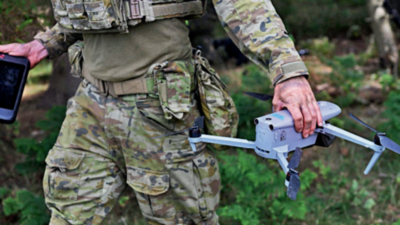The most likely outcome of war is more war. As Nietzsche has pointed out in Human, All Too Human, what no govt admits is that it keeps an army to satisfy occasionally the desire for conquest. Every govt is supposedly armed only for defence, but this presupposes one’s cause as just and the neighbour’s as unjust. And then what happens? Fighting monsters carries the danger of becoming a monster. Gaze long enough into the abyss, the abyss will gaze back into you.End Of EmpathyIn the ideology of war, the suffering of the Other is somehow no suffering. But as hatred of the enemy becomes indifference to his bleeding wounds, it takes a toll on the self too. In the Israeli psychological thriller TV series Blackspace, centred on a school shooting, students are shown to be deeply marked by the idea of necessary war. An extreme dehumanisation of the enemy demanded of them, brings other disconnections as well. This hardening is supposedly a survival strategy, but it also shuts down parts of the self that are most essentially human. Killing empathy is a betrayal of our own nature. We are wired for connection, cooperation and recognising ourselves in others.Crisis Of The SoulWar provides the narrative arc of Mahabharata. Philosophically, however, its laying of corpses, captured in harrowing detail over tens of thousands of verses, is supposed to make us think about the cosmic meaninglessness of mass killing. Yudhishthira himself says he doesn’t want the throne of Hastinapura that’s been won with so much bloodshed: ‘Since we slaughtered our own, what good can possibly come from ruling? Damn the ways of kings! Damn might makes right! Damn the turmoil that brought us to this disaster!’The Waste Land by TS Eliot has been called a PTSD poem wrought by WW-1. In putting an end to that kind of close-quarters combat, advanced weaponry had promised less barbaric wars. That was a cruel lie. New technologies have only increased the facelessness of those killed, and the indifference of those doing the killing. This is humanity staring into the abyss on an exponentially bigger scale.‘God Is Dead’There are the supposedly just causes, and then there are the excesses of brutality. From the mass rapes during Bangladesh’s Liberation War to the mass children’s graves in Gaza…wasn’t it in relation to savageries of this kind that Nietzsche said ‘God is dead’? Persons exposed to such events feel both a collapse of civilisation and a spiritual crisis.For the ancient Greeks, the opposite of the sacred was ‘miasma’, the kind of pollution associated with bloodletting that is against the natural order. For many veterans, it’s a lifelong feeling, that they left some core part of themselves behind with the bodies. Their wounded soul seems to almost be visible under their skin. But its ripples of trauma also touch their families and their societies. Drip, drip, it poisons the capacity for trust and tenderness. Unless, as Hannah Arendt wrote in The Human Condition, the birth of ‘new men’ constructs new beginnings.









